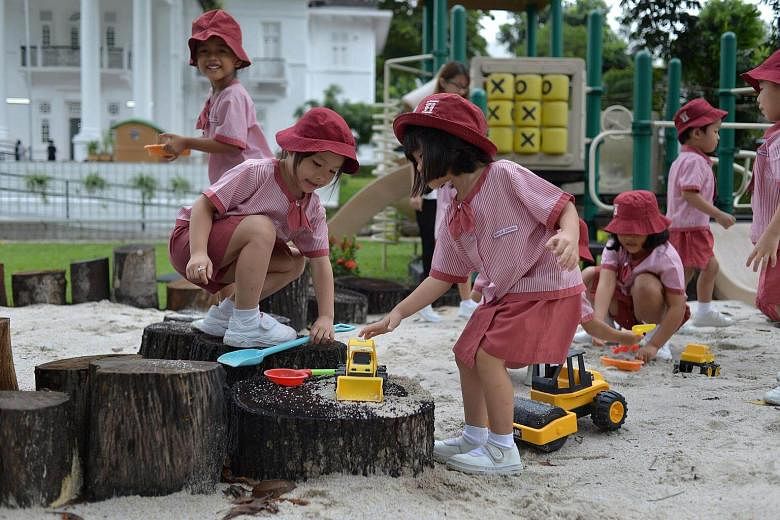Speak with them, spend time with them and understand who they are - these, said counsellors and psychologists, are several key steps in building stronger relationships with children, who will in turn be more open about sharing their problems.
Dr Thomas Lee, medical director and consultant psychiatrist at The Resilienz Clinic, said children at the age of 12 and below are still developing emotionally and mentally. He said: "They don't know how to talk about their feelings."
Ms Pamela See, an educational and developmental psychologist from Th!nk Psychological Services, said: "If parents are encouraging and allow open communication, their kids are more likely to share their difficulties with them knowing that they will get the support."
Parenting coach Cheren Kwong believes parents must spend quality time with their children, instead of being "too engrossed in work or their phones".
Psychologist Daniel Koh from Insights Mind Centre explained that communication with children must go beyond what parents deem as "important", such as if homework is done or they have revised for tests.
Parents must show interest in their children's lives beyond how they fare in their studies, said counsellor Madelin Tay, from Family Central, a service of Fei Yue Community Services. "If we focus on just the academic aspects, kids may feel accepted only when they have measured up or when they have achieved. Kids want to know that they are accepted unconditionally," she added.
Dr Carol Balhetchet, senior director for youth services at the Singapore Children's Society, said: "When children see their parents' faces, they see a validation of love - whether they come in first or last, whether they win or lose."
Mr Bimal Rai, an educational psychologist from Reach Therapy Services, said: "Parents need to manage their expectations and be mindful of what they convey to children.
"At the moment, the message that seems to define our culture is 'you must do well, the Primary School Leaving Examination is very important'."
Instead, the focus should be on helping children be more resilient when they fail and providing unconditional support.
Said Dr Balhetchet: "We have been brought up with so much success that we think that we cannot afford to fail. But sometimes failure is another way of learning."
Mr Brian Poh, a clinical psychologist from the Institute of Mental Health's department of child and adolescent psychiatry, said rather than being overly focused on results, it is better to praise young children for their "effort in completing their work or trying their best".
Parents and educators can also teach children how to cope with academic pressure, such as setting goals and managing time, he added.
Ms Lena Teo, deputy director of therapy and mental wellness services at the Children-At-Risk Empowerment Association Singapore, urged parents to understand their children's abilities better: "Every child has (a) different kind of smart. Some are academically smart, some are better with their sports or music, while others are late bloomers."
Technology entrepreneur Chow Yen Lu, in his 50s, who co-founded Over the Rainbow, a non-profit organisation that promotes mental wellness among young people, said parents need to be less "authoritarian" and more like "partners and advisers". His lost his own son, Lawrence, in 2009, a few months before his graduation from Murdoch University in Australia. Lawrence had been battling manic depression for eight years.
"The most important thing is to be there, and be supportive... (when facing failure) tell them that it's like a thunderstorm, that everything will come to pass," said Mr Chow.
Higher-level schools like junior colleges have started training students in basic counselling skills and mental health issues, realising that it may be be easier for them to talk about their problems with someone of similar age. The Ministry of Education said schools also build resilience in students through ways such as project work, co-curricular activities and camps. "Teachers teach students social-emotional skills such as time management, goal-setting, coping with stress, and handling expectations," said a spokesman, explaining that teachers are trained to detect signs of distress and provide basic counselling.
But students at a younger age need more guidance from parents, said counsellors. Part-time recruiter Christine Lim, 39, said she told her Primary 6 daughter, who had read news about the 11-year-old who fell to his death after receiving his Primary 5 results, that after failure, "you can always try again".
• Additional reporting by Calvin Yang and Yuen Sin

